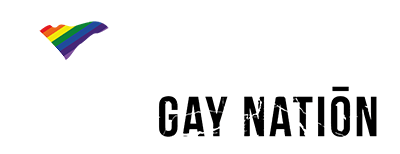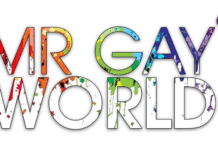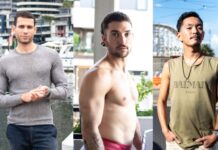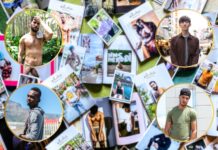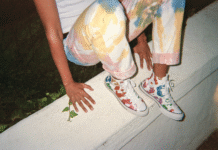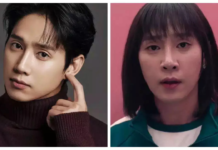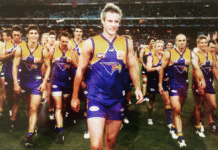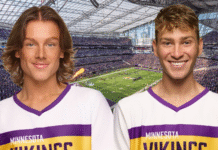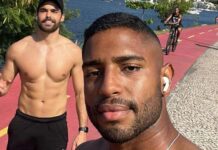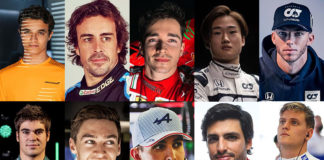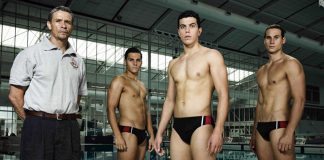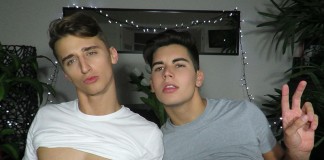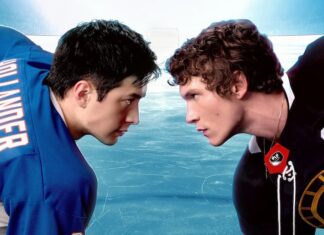
“Looking” doesn’t attract a lot of viewers. As a foray into a very particular component of the gay community, the HBO half-hour boasts a distinctiveness that is creatively invigorating, but commercially limited. Unlike the Showtime series “Queer as Folk,” executive producers Michael Lannan and Andrew Haigh make no effort to generalize the everyday problems faced by their young, gay, San Francisco subjects. Rather, they mine situational comedy and dramatic tension out of their characters’ specific identities and backgrounds; it’s that deeply-personal approach to storytelling that makes the show feel so richly intimate.
By providing such a distinct insider’s point-of-view, “Looking” has created characters and stories that feel quite new, and thus quite important, to the television landscape. In that way, it’s a part of a fantastic trend happening in TV right now: the explosion of stories about marginalized communities, told by members of those communities who don’t soften their edges or broaden their content.
Jill Soloway’s “Transparent” was praised to the high-heavens for its sensitive and humane representation of a transgender person’s transition; notable as that was, her depiction of a Jewish Los Angeles family felt even more groundbreaking for its authenticity (seriously, what other TV show has ever used the word “schmear” so organically?). ABC’s “Black-ish,” meanwhile, burst onto the scene last fall by confronting questions of modern African American identity with a biting sense of insider’s humor. And over on The CW, “Jane the Virgin” has reached a diversity of people through its commitment to specificity: as showrunner Jennie Urman said earlier this week at PaleyFest, “The more specific the character is, the less likely they are to be stereotypical.”

“Looking” shares those same elements that have made series like “Transparent” and “Jane the Virgin” so creatively successful. Over two seasons now, effectively established histories inform the way the series’ protagonists — Patrick (Jonathan Groff), Augustín (Frankie J. Alvarez) and Dom (Murray Bartlett) — act out, joke, romance, dance, even eat. The show radiates authenticity. And more importantly, it provides an opportunity for viewers to grapple with characters and issues that are sorely underrepresented in mainstream media.
This season, in the case of Patrick, we’re seeing Lannan and Haigh confront the crippling, enduring and damn-near-undetectable self-loathing certain gay men who come from certain backgrounds struggle with. Patrick grew up in an environment that was neither hostile nor embracing, and so for him, San Francisco represents a chance to break free of the muddled past. In Season 1, he began a relationship with a genuine, smart, attentive (and yes, handsome) barber named Ritchie (Raúl Castillo). But he sabotaged it, racing into an affair with the hunkier and more cryptic Kevin (Russell Tovey) — his boss, by the way, who was cheating on his own boyfriend of many years.
The execution of this character arc extended far beyond the expectation. This wasn’t a generic “we want what we can’t have” statement. The way Haigh and his team would shoot sex scenes between Patrick and Richie, or follow the two with the camera at a distance as they’d take off work and survey their city of possibility, aided in the expression of normalcy. This was exactly the point — Patrick has never been able to connect his sexual identity to “normal,” much less feel comfortable with a man as nice, gentle and patient as Ritchie. Such a solid foundation is all too unsettling for a person still working out their inner homophobia.
Thus, that Patrick falls into a morally-obtuse affair is less about his relationship to romance than his relationship to himself. It’s a punishment, with the sex torrid and harsh and its status substantially more finite. Consider the second season premiere, in which the two meet up in the woods by a lake and have an irresistibly sexy — and quick — encounter. The timing is key, as just before, Patrick and friends are at a massive outdoor party. Director Haigh injects a stunning, sweeping Steadicam shot, panning around the party and capturing a startlingly diverse community in race, gender, sex, age; you name it. The evocation here is completely care-free, with a joyous celebration of identity, in all its malleability.
So is it a coincidence that Haigh, who also wrote the episode, immediately follows it up with Patrick summoning Kevin to meet him in the woods? “Looking” is so opposed to melodrama or any hint of heightened conflict that, sometimes, it can be difficult to discern the intent behind creative choices. But here, quite clearly, the show put its protagonist in a compromised light, indicating the innate flaws of a person who grew up as Patrick did.
But Patrick is likable, good-natured and a little dorky (he works for a video game software company). That means to say that “Looking” is far from an anti-hero show; rather, it’s journeying its main character to self-acceptance. So while it can be frustrating to watch Patrick and Kevin double-down on their relationship — the affair has since turned into quite the commitment, as Kevin has left his long-time partner — it’s also believable and fully-felt. The show takes its characters and their emotions seriously, and it’s not hard to see why the relationship has endured. Kevin has challenged Patrick’s sexual comfort zone, reversing their dynamics and ultimately making clear that to be gay can mean being more than one “thing,” or one specialty.

“Looking” is so good at mining intimacy between two characters, and it’s remarkable how the show renders sexual encounters both deeply romantic and crucial to character. Throughout, Patrick is being tasked to experiment and de-stigmatize gay sex: In a Season 1 scene, Ritchie gives him a rim job, and Patrick’s fear — and the newness and strangeness of the image for the audience — is quickly quelled. In a sense, Patrick’s journey mirrors viewers’ as Haigh and Lannan continue to systematically dismantle prejudices and misinformed opinions. It’s just sex, Haigh and Lannan remind, as weirdly normal as what anybody else does. Just as “Jane the Virgin” has done, “Looking” attains universality through its commitment to specificity.
The narrative construct of “Looking” is quietly essential. The journey to self-acceptance is a remarkably common one for any person beyond a mainstream identity, and yet “Looking” seems to be the first series to tackle it. And it’s doing so with grace, humor and honesty to spare. The way Patrick interacts with his mother (played by Julia Duffy), who’s about to leave her husband of decades, is so subtly and delicately handled, as Patrick battles conflated feelings of repressed resentment, reluctant understanding and pervading insecurity every moment he’s in her presence. Similarly, his interactions with Kevin are infused with a twinge of distance; there are genuine feelings between them, but Haigh and Lannan never lose sight of the fact that this relationship isn’t quite right. The messy, conflicted feelings of “Looking” are intrinsic to its naturalism.
But as mentioned earlier, the ratings for “Looking” are dreadful, with a recent episode logging a dismal 0.0 ratings share and fewer than 200,000 viewers. And it’s a shame. Our culture has come a long way in how we look at the LGBT community, but even as far as white gay men are concerned, artistic representations remain severely lacking. It’s why “Looking,” in which spotting a straight person is quite the rarity, is so important, and why each episode seems to contain such an irrepressible vibrancy.
There’s legitimate originality here: This season, for example, Augustín has dropped his artistic pretensions for a legitimate engagement with the community he’s taken for granted. Together with his “bear” of a boyfriend, Eddie (Daniel Franzese of “Mean Girls”), he’s begun working at a homeless shelter for transgender teens. Again, the approach of the “Looking” team here is not overwrought or pitiful. It’s merely shining a light on people who get forgotten, all in the service of character.
That’s the magic of “Looking.” Like in “Transparent,” its characters are distinct and their problems hitherto unseen, and yet their respective developments as sexual, romantic and individual human beings sting for how broadly they reach and for intensely they resonate. The community of “Looking” is a rainbow — and that’s a strange, sad fact to consider, since next-to-none of its participants can be found elsewhere, on TV or in films.
Republished with permission from Indiewire and writer David Canfield.
Following the publishing of this story, HBO have cancelled the whole show.
To wrap up the story-lines they will produce one more stand alone episode.
In a statement from HBO “After two years of following Patrick and his tight-knit group of friends as they explored San Francisco in search of love and lasting relationships, HBO will present the final chapter of their journey as a special,”
“We look forward to sharing this adventure with the shows loyal fans.”
Last Updated on Mar 26, 2015
The news team for Gay Nation love tips from our readers. Got tips or a news story that you would like published? Go here to tell us something.
Visit the Gay Nation store Now

